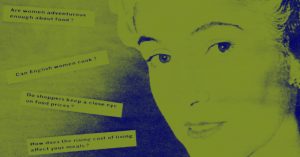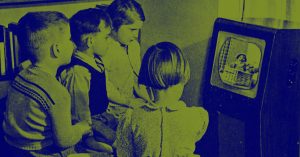Situation Comedy
The British Version
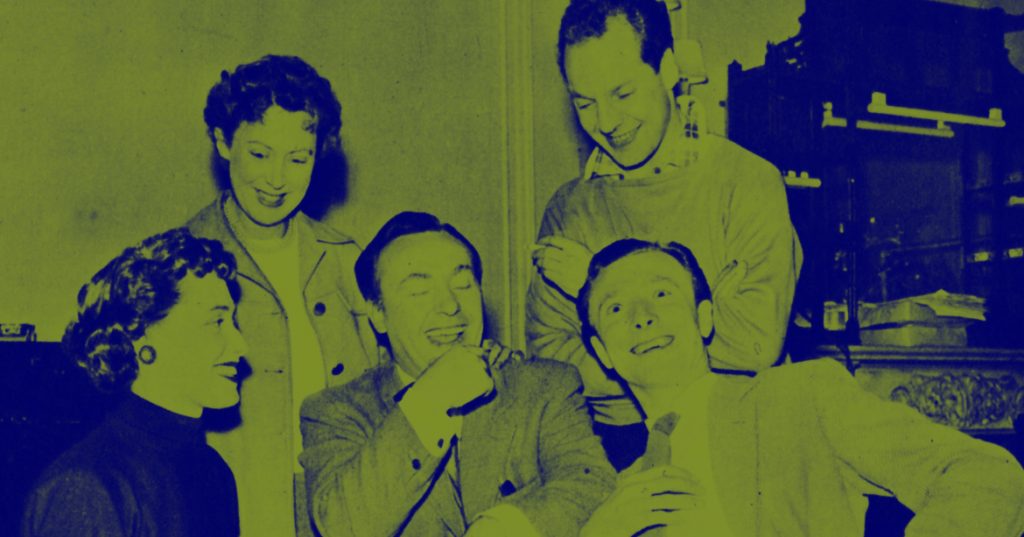
The British Version
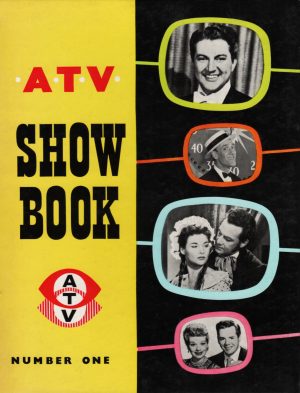
For years the Americans have been unchallenged lords of the market in domestic-situation comedy serials. There are many reasons for this. In the first place they have a maxim in the States that if a thing is worth doing, it is worth doing ‘big’. This brought down to terms of fact means that Liberace had an entourage of sixty when he came to this country; Lena Horne carries with her a hairdresser, maid, a host of musicians, her bandleader husband, a manager and Messrs. X, Y and Z wherever she travels; Bob Hope employs half a dozen writers on each script, and domestic comedy teams are backed by an equally impressive host of writers.
No artiste can go on the stage and be funny without the requisite material, and even the comedians who are touched with genius cannot for ever think up their own gags. However, half a dozen writers in a humorous frame of mind are bound to produce something worthwhile between them in a week, and that is just where America scores over ourselves. Unlike many British script-writers who are expected, individually, to turn out perhaps four scripts in a week, those in the USA concentrate on producing just one script per six or so writers.
Another feature of the American comedy series is their exploitation of true-to-life situations. In this country many of us still seem to be under the misapprehension that in order to be amusing, a situation must be outlandish. But, thanks to American films like I Love Lucy we are learning better.
The basic contents of a good domestic comedy series are these: fun which the whole family can enjoy; true-to-life characterizations; good acting; and finally, and perhaps most important, good script-writing. Many series have started in this country, attempting more or less to conform to these requirements. All have been hailed as rivals to I Love Lucy or to the Burns and Allen Show. All have fallen by the wayside, with one notable exception. Joan and Leslie Randall have produced a series of delightful, simple and extremely funny programmes, containing all the ingredients listed above, and imitating none of the American shows. They have therefore provided us with not only an extremely popular form of entertainment, but also with the first domestic comedy programme to rival imports from the United States.
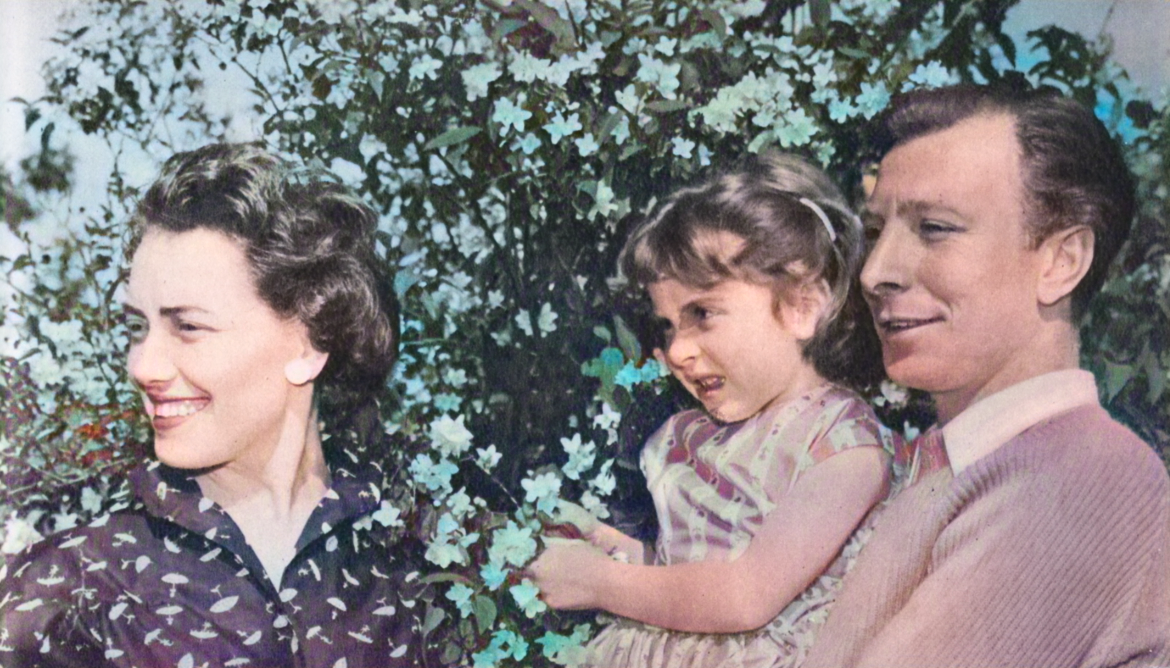
When Leslie Randall was interviewed before the start of his recent series he said, ‘I am a great admirer of Burns and Allen but we do not intend to imitate in any way.’ The interviewer smiled benignly, having heard the same phrase from at least half a dozen other couples. But within five minutes of the end of the first Randall programme he was ringing Leslie to offer his congratulations. The phone was engaged. Already speaking to Leslie Randall was ATV director Lew Grade, announcing that the Randalls were signed up for a further thirty one programmes, that they would appear weekly instead of fortnightly, and that the deal would be worth seven thousand pounds for them in the coming year …
Let us now take a look at the Joan and Leslie programme and see how it mixes its ingredients. There’s certainly fun for the whole family. And characterizations are invariably possible and true-to-life. Leslie plays the part of a lonely-hearts columnist and Joan the part of his actress wife. They live above Mike’s garage. Their daily help is a fine woman and is treated more as the family confidant than as a char. This is the background for the true-to-life situations.
Doesn’t every Englishman want to buy tickets for a Test Match, and haven’t many been cheated by a spiv? And isn’t it funny when a completely guileless wife double crosses that same spiv in the most delightfully naive way? Don’t we laugh when we see a couple, in trying to burglar-proof a house, make it difficult to get out of but as easy as ever to enter?
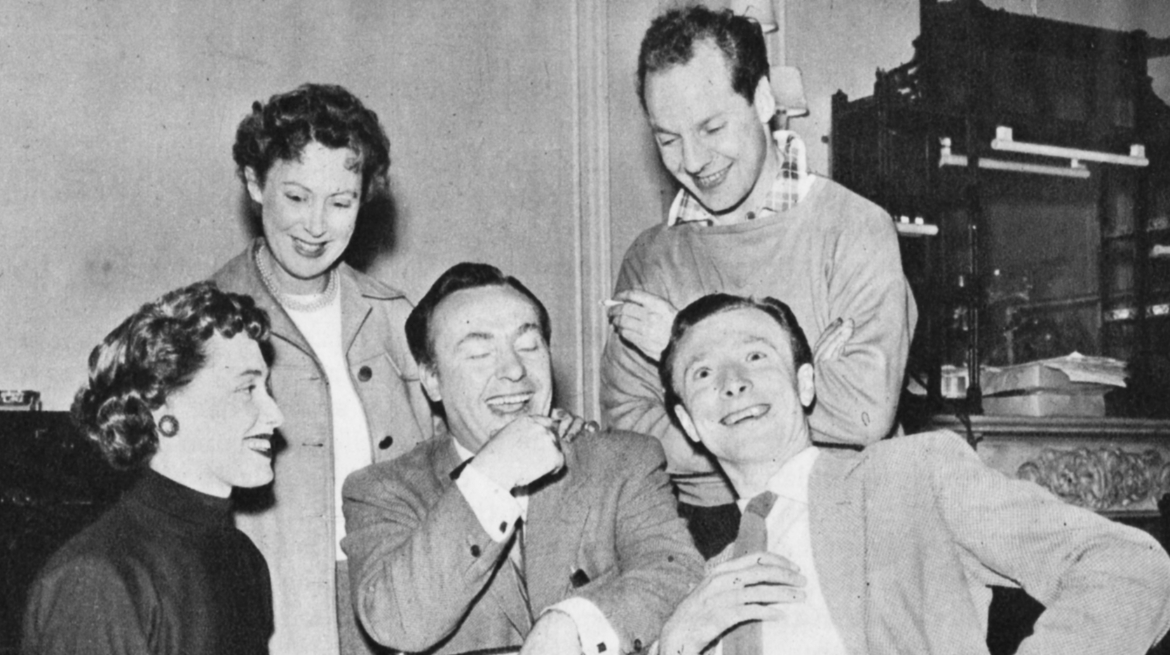
The third requirement we mentioned was good acting. Lest anyone who has only seen Leslie in Variety or in Cabaret at a London night haunt should still fail to appreciate the Randalls’ acting prowess, let us glance at the couple’s career. We shall exclude Leslie’s two appearances on the Ed Sullivan show (one of the finest of all American shows, an appearance on which is regarded as the acme of success); we shall disregard his two Palladium engagements; and we shall put aside his two cabaret successes at the Savoy, for these are all in the world of light entertainment.
Leslie’s first professional engagement earned him three guineas for four performances as Paris in Romeo and Juliet. A year later (1948) he met Joan when she was playing repertory in Darlington. There she took the part of Miranda in The Tempest. In her four years of repertory experience Joan played every possible juvenile female lead before she entered the West End. Meanwhile, Leslie was touring Germany in Opera. One has to be good when one is taking coals to Newcastle. An Englishman speaking German in Germany is not perhaps Nancy Mitford’s idea of the U thing to do in that country, but Leslie carried his part in Die Schone Galatier with a deal of success.
The Randalls are ably supported in their TV series by a varying cast in which Harry Towb (‘Mike’), and Noele Dyson (‘Mrs. Henshaw’) are the only permanent members. Noele was educated at Roedean and one of the better Parisian finishing schools – there can’t be many stage ‘chars’ who can claim such expensive education!
The last ingredient we mentioned was a really good script. For the first time in this country four writers are permanently engaged in preparing one weekly script. To Dick Sharpies, Gerald Kelsey, John Law and Bill Craig must go the credit for the excellence of the material used. Add to this the aid of producer Hugh Rennie and the suggestions from the Randalls and you have the value of at least one more script writer.
Who knows, maybe they will have to film the series soon, so that the Americans can at long last see that there is such a thing as a good British ‘situation comedy’ series.
About the author
The ATV Show Book (later editions were not sponsored by ATV) was an annual produced in the late 1950s and early 1960s


